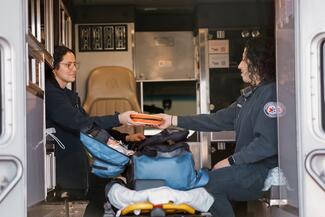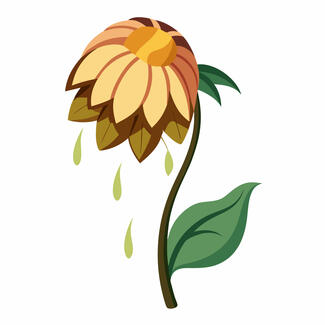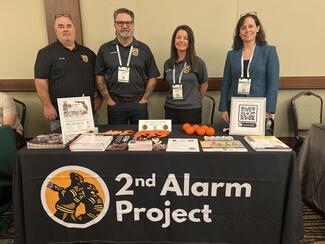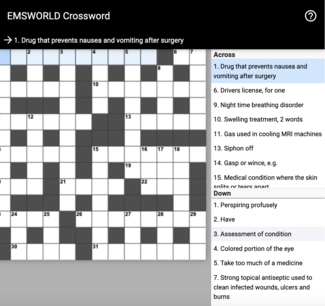The Silent Weight: How Cumulative Trauma Changes Us
Editor’s Note: This is the third article in a series called “It’s OK to Not Be OK: Real Conversations About Mental Health in Public Safety.” Over the next several months, Jason Fox will dive into topics that every EMS provider, firefighter, dispatcher, student, and leader needs to consider—not just for their career, but for their lives outside the uniform too. Read previous articles.
When people outside of public safety hear the word trauma, they often think of the dramatic calls—the fiery crashes, the mass casualty incidents, the intense scenes that make headlines and news segments. Those moments certainly have an impact. They can be unforgettable and life-altering. But they are not the only events that change us.
What truly reshapes us are the quiet and unrelenting experiences that never make the news—the emotional bruises that accumulate over time. The calls we carry home. The feelings we tuck away. The pain we witness, day in and day out. I call it “death by paper cut.” Because that’s what it feels like. Small, seemingly manageable wounds that pile up, layer after layer, until suddenly, we’re bleeding out emotionally—and we didn’t even see it coming.
Trauma Isn’t Always One Big Event
In EMS and public safety, trauma rarely comes in a single, defining moment. It’s the build-up of countless experiences. It’s the toddler in cardiac arrest who reminds you of your own child. It’s the overdose where a mother’s desperate scream still echoes in your mind. It’s going from one difficult call to another without a moment to breathe. It’s skipping meals, losing sleep, and missing milestones—birthdays, holidays, family dinners—so you can help keep someone else’s family whole.
It’s not just the calls, either. It’s dealing with broken equipment, outdated protocols, or a toxic partner who drains every ounce of energy you have left. It’s the frustration of knowing what a patient needs but not being able to provide it due to lack of resources or bureaucratic barriers. It’s the leadership that fails to support, acknowledge, or uplift. These aren’t just inconveniences. They’re wounds; and over time, they add up.
We Don’t Always See the Damage
The thing about cumulative trauma is that we often don’t recognize the toll it’s taking—until it’s already taken so much. At first, we may just feel a little more tired, a little more irritable, a little more disconnected. We chalk it up to a hard shift or a tough week. We tell ourselves it’s part of the job. We’re the helpers, after all. The strong ones. We recognize the signs and symptoms in others, so surely, we’d recognize them in ourselves ... right?
But slowly, burnout creeps in. The things we once loved—our families, our hobbies, our careers—start to feel like obligations. The safe places don’t feel as safe. We stop reaching out. We convince ourselves that our loved ones won’t understand, or worse, that we’d be a burden if we did share what we’re feeling. So, we don’t. Instead, we carry it all in silence.
Moral Injury: When Helping Hurts
Compounding the emotional weight we carry is something many of us don’t even have the words for: moral injury. This isn’t about what happens to us—it’s about what we witness or are forced to do that conflicts with our values and sense of right and wrong.
It’s the patient you know needs care, but the system leaves them waiting in triage with no available bed. It’s the homeless veteran who served this country and now walks out of the ER to return to the streets. It’s watching someone leave the hospital knowing they can’t afford their medication. These moments don’t just frustrate us—they haunt us. They create an internal struggle between what we know is right and what we’re able to do.
That’s a heavy burden to bear.
None of Us Are Immune
Let me be very clear: none of us are immune. And none of us are alone.
One of the things we do so well in this profession is calling for help when a scene is beyond what we can manage. We ask for backup. We request mutual aid. We know when we’re outnumbered, outpaced, or outmatched. We do this without shame—because the mission matters and lives are on the line.
Your mental health deserves the same urgency. If you’re willing to call for help to save a stranger, you should be just as willing to ask for help to save yourself—or a colleague. Mental health support is not a weakness. It’s a tactical decision. It’s a survival tool. It’s how we keep the provider healthy so the care can continue.
Mutual Aid Isn’t Just for Emergencies
When someone around you is clearly struggling—withdrawn, angry, exhausted, reckless, or numb—don’t wait until they hit their breaking point. Check in. Offer support. Start the conversation. Sometimes, all it takes is one sincere question: “Hey, I’ve noticed you’ve seemed off. Want to talk?” It doesn’t need to be a formal intervention. It starts with presence. With noticing. With listening—not just to reply, but to understand.
When someone does open up to you, be there. Truly be there. Put down your phone. Stop checking the time. Don’t let them feel like they’re inconveniencing you. They’ve chosen to trust you with something heavy—so honor that trust with your full attention. Sometimes, just knowing someone is willing to listen can be enough to help someone hang on for one more day.
Dark Humor Isn’t Always Harmless
Now let’s talk about one of our favorite coping mechanisms: humor. In public safety, we’re known for our dark, dry wit. To some extent, it helps. It creates connection and lets us laugh through the pain.
But it can also become a mask. Are we really laughing to cope? Or are we hiding what we can’t say out loud? I love a good laugh as much as anyone. Humor has helped me through some of my hardest days. But when it becomes the only outlet, we need to ask ourselves: What are we not dealing with? Are we using jokes to ease the pain—or to avoid it?
It’s OK Not to Be OK
We need to normalize the conversation. We need to normalize not being OK. We need to create spaces where it’s safe to share our struggles. From the brand-new student to the seasoned supervisor, no one is exempt from the emotional toll this work can take.
We don’t wait until a patient crashes to act—we intervene early. The same should be true for mental health. Make time for your people. Ask the hard questions. Check in with your team. Take your own pulse. And when you need help, ask for it. That’s not weakness—that’s resilience.
The Bigger Picture
We also need to remember that people are fighting battles we don’t always see. Divorce, parenting struggles, financial hardship, aging parents, chronic illness—these don’t pause just because we put on a uniform. They pile onto the stress already weighing us down.
So be kind. Be aware. And above all, be willing to show up—not just on calls, but for your people.
Changing the Culture Starts With Us
There’s no easy solution, and no article can fix it all. But this is how change begins—with honesty. With vulnerability. With a willingness to admit that the weight is real and that sometimes, it’s too much to carry alone. If we can do that—again and again, one conversation at a time—we can start to shift the culture. We can build workplaces where mental health is treated as essential, not optional. Where mutual aid includes emotional support. Where reaching out for help is seen as courage, not failure.
So when the weight feels too heavy—call for mutual aid. And when someone calls on you—answer.



















